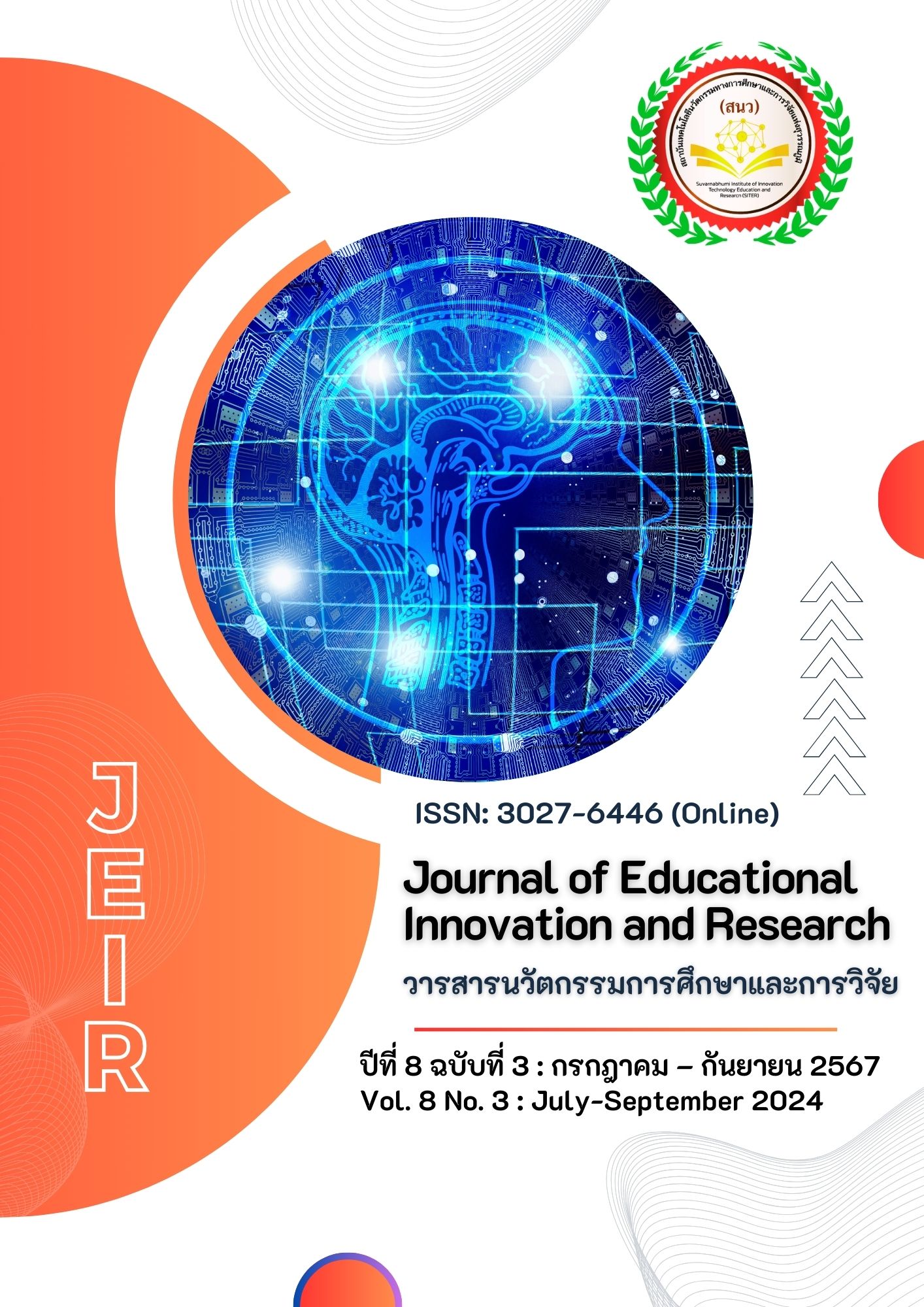Impact of Anchor's Attributes on Consumer's Online Behavioral Intention in Private University, Sichuan Province, China
Main Article Content
บทคัดย่อ
This research aims to analyze the teaching anchor’s attributes factors' effect on consumers’ intrinsic state and consumers’ online behavioral intention, and the mediating role of consumers’ intrinsic state between teaching anchors attributes and consumers’ online behavioral intention. In order to achieve this objective. This research was quantitative research, collected data from private university students in the Sichuan Province of China, sample of 418 respondents. They were selected by systematic random sampling technique has been employed, the instrument for collecting data was a questionnaire with a content validity (IOC) of .892and a reliability value of Cronbach’s alpha coefficient of .879. When the analysis techniques were SPSS, and SEM by AMOS and applied to the collected data, the research found that:
- Teaching anchor’s attributes factors were personal charisma, professional level, and interactive ability direct effect on consumers’ intrinsic state classifier by consumer value, consumer trust, and consumer excitement.
- Mediating role: 2.1). Consumer’s intrinsic state excellence, value, and trust play mediating role impact between teaching anchor’s attributes with personal charisma and online behavioral intention, 2.2). Consumer’s intrinsic state excellence, value, and trust play mediates role impact between teaching anchor with professional level positively and online behavioral intention, 2.3). Consumer’s intrinsic state excellence, value, and trust play mediates role impact between teaching anchor’s attributes with interactive ability positively and online behavioral intention. The Teaching anchor's benefits in personal charisma, professional level, and interactive ability had a direct impact on consumers' intrinsic state classifiers of consumer value, trust, and enthusiasm.
Article Details

อนุญาตภายใต้เงื่อนไข Creative Commons Attribution-NonCommercial-NoDerivatives 4.0 International License.
เอกสารอ้างอิง
CNNIC China Internet Network Information Center (2023). China Network Performance (Live Streaming) Industry Development Report (2021-2022) [R]. 2023.
Han, J., & Toms, C. (2020). The Mediating Role of Consumer Value and Trust in Post-Sales Service Satisfaction. Journal of Service Research, 13(2), 183-196.
Hsu, C. K., & Lin, F. R. (2019). The role of moderator variables in the relationship between A Study of Podcast Attractiveness, Message Acceptance, and Purchase Intentions: Evidence from online live broadcast shopping platforms in Taiwan. International Journal of Information Management, 34(5), 664-675.
Jin, L.& Lingjing, Z. (2021). Online persuasion: how the written word drives WOM evidence from consumer generated product reviews. Journal of Advertising Research, (51),47-56.
Khantanapha, N., Rattanapun, S. Morasilpin, T. (2020). The Effect of Human Resource Practices and Environment Management on Rice Berry Business Performance in Thailand. PalArch’s Journal of Archaeology of Egypt/Egyptology, 17(1), 211-223.
Kim, J., & Lee, Y. (2017). The role of moderator variables in the relationship between announcer’s attractiveness, trust, and purchase intention: Evidence from online live broadcast shopping in Korea. Journal of Global Information Technology Management, 20(4), 267-284.
Li, Y.X., & Ye, L. (2020). The Impact of E-commerce Live Broadcast on Consumer’s Purchase Intention — An Empirical Analysis Based on Iceberg Model and SOR Model. Journal of National Circulation Economy, (12), 5-8.
Liu, J. (2018). A study on the influence of social e-commerce opinion leaders on the purchase intention of apparel consumers: the case of Meilizhou and Mushroom Street. Hangzhou: Zhejiang University of Science and Technology.
Meng, F. (2022). Research on the influence of opinion leaders on purchase intention in social business environment. Nanjing: Nanjing University.
Parasuraman, A. (1997). Reflecting on gaining competitive advantage through customer value. Academy of Marketing Science,25(2),154.
Park, H. J.& Lin, L. M. (2020). The effects of matchups on the consumer attitudes toward internet celebrities and their live streaming contents in the context of product endorsement. Journal of Retailing and Consumer Services, (52),48-63.
Shan, M., Li, J. & Liu, X. (2019). A Study on the Influence of Consumer Opinion Leaders on Consumer Attitudes in Social Network Environment. Consumption Economy, 2(1),56-62.
Spry, A., Pappu, R.& Cormwell, B. (2021). Celebrity endorsement, brand credibility and brand equity. European Journal of Marketing, 45(6), 882-909.
Stewart, K. J. (2023). Trust transfer on the World Wide Web. Organization Science,14(1), 5–17.
Teng, S., Khong, K.W., Goh, W.W. et al (2020). Examining the antecedents of persuasive eWOM messages in social media. Online Information Review, (38),86-93.
Tzoumaka, E., Tsiotsou, R. H., Siomkos, G. (2019). Delineating the role of endorser’s perceived qualities and consumer characteristics on celebrity endorsement effectiveness. Journal of Marketing Communications,22 (3), 307-326.
Wang, T., Cui, N., Yang, K. (2019). The impact of customer engagement on customer perceived value: Based on psychological account theory. Business Economics and Management, (11),81-88.
Wang, Y., Wu, H., & Bloch, P. (2018). The impact of social media endorsements on consumer’s purchasing behavior: The moderating role of consumer narcissism. Journal of Business Research, 89, 365-376.
Wolfgang, S. C. (2021). Measuring customer perceived value in business market. Journal of Industrial Marketing Management, 30(2),525-540.
Wu, N., Ning, C. & Gong, X. (2020). A Study of the Mechanism of Communication Style Similarity on Purchase Intentions in Direct Marketing. Journal of foreign economic and management, (8),142-150.


